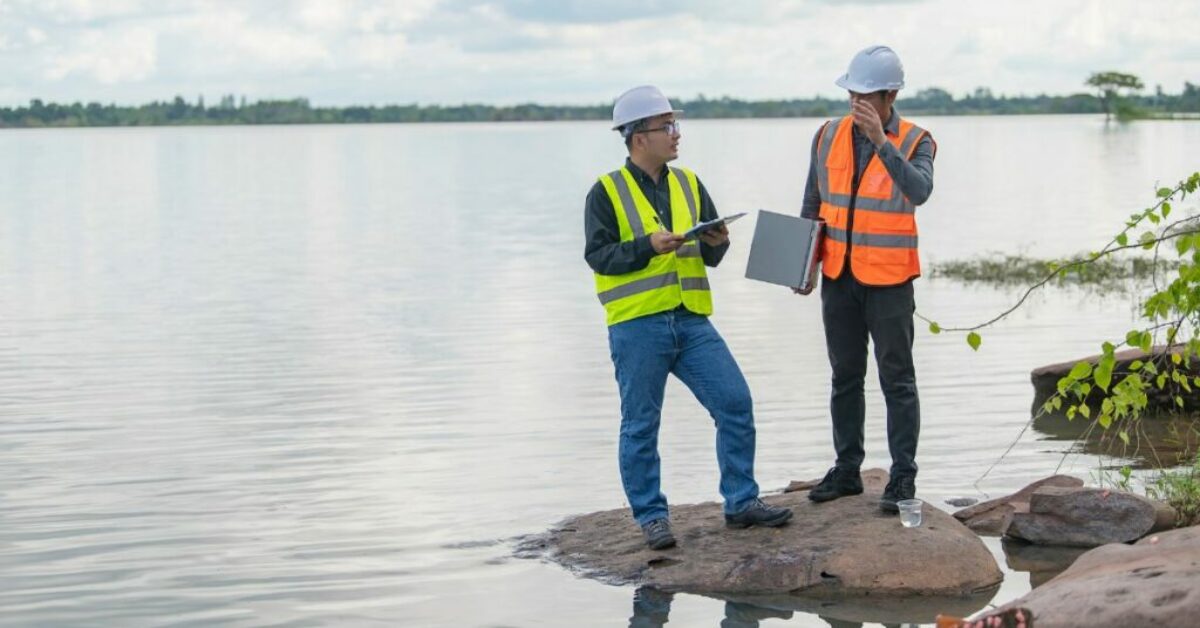How To Become An Environmental Engineer?
Are you looking for a career that allows you to make a positive impact on the environment? Have you ever considered becoming an environmental engineer? Not only is this a rewarding job, but it is also in high demand. Here we will cover the steps to becoming an environmental engineer, the necessary skills, and the benefits of working in this field.
Steps To Becoming An Environmental Engineer
Environmental engineering is a highly specialized field that involves the application of engineering principles to protect and improve the environment. Environmental engineers work to address issues related to air and water pollution, waste management, and sustainability. If you are interested in pursuing a career in environmental engineering, here are the steps you need to take:
- Earn an Undergraduate Degree in Engineering
The first step to becoming an environmental engineer is to earn an undergraduate degree in engineering. This degree should be from an Accreditation Board for Engineering and Technology (ABET) accredited program. During your undergraduate studies, you will take courses in mathematics, physics, and chemistry, as well as courses specific to your engineering major. In addition, you will learn about environmental regulations, pollution control, waste management, and sustainability.
- Pursue a Master’s Degree or a Ph.D. in Environmental Engineering
After completing your undergraduate degree, you can pursue a master’s degree or a Ph.D. in environmental engineering. Some universities may offer programs specifically for environmental engineering, while others may offer a concentration within a broader engineering program. During your graduate studies, you will conduct research, work on projects, and gain additional knowledge and skills in environmental engineering.
- Participate in Internships and Co-Op Programs
Internships and co-op programs provide valuable work experience and networking opportunities with professionals in the field. Many engineering programs require or strongly encourage students to participate in these programs. During your internship or co-op, you will work on real-world projects and gain hands-on experience in environmental engineering.
Check out online portals like Indeed and ZipRecruiter for more internship and Co-Op opportunities. - Obtain a Professional Engineering (PE) License
After completing your formal education, the next step is to obtain a professional engineering (PE) license through your state’s licensing board. This requires passing the Fundamentals of Engineering (FE) exam and the Principles and Practice of Engineering (PE) exam. These exams test your knowledge and skills in engineering principles and ethical practice. Once you have your PE license, you can work as a licensed environmental engineer.
Overall, becoming an environmental engineer requires a strong educational background, hands-on experience, and a commitment to ethical practice. If you are passionate about protecting and improving the environment, a career in environmental engineering may be right for you.
Skills Needed to Become an Environmental Engineer
In addition to these core skills, there are several other important qualities that can make a successful environmental engineer. One of these is creativity. Environmental engineers often have to come up with innovative solutions to complex problems, and being able to think outside the box is a valuable asset.
Another key skill for environmental engineers is adaptability. The field of environmental engineering is constantly evolving, with new technologies, regulations, and challenges emerging all the time. Engineers who can stay up-to-date with these changes and adapt their approach accordingly are more likely to succeed. The U.S. Environmental Protection Agency (EPA) provides comprehensive information on the latest environmental regulations, which would be helpful to engineers staying up-to-date on regulations.
Collaboration is also an important skill for environmental engineers. Many projects require input from multiple stakeholders, and engineers who can work effectively with others are better equipped to navigate these complex relationships. This means being able to listen to others’ perspectives, communicate clearly, and work towards common goals.
Finally, a passion for environmental sustainability is often a driving force for those who choose to pursue a career in environmental engineering. This passion can help motivate engineers to tackle difficult challenges and find creative solutions that benefit both the environment and society as a whole.
Overall, becoming a successful environmental engineer requires a combination of technical skills, creativity, adaptability, collaboration, and a strong commitment to environmental sustainability. With these qualities, engineers can make a positive impact on the world and help create a more sustainable future for all.
What is An Environmental Engineer?
Environmental engineering is a field that involves the application of engineering principles to protect and improve the environment. Environmental engineers work to develop solutions that address environmental problems, such as air and water pollution, waste management, and climate change.
Environmental engineers play a critical role in creating a sustainable future. They work to reduce the impact of human activities on the environment and to promote practices that are environmentally friendly. This includes designing and implementing systems that reduce pollution, conserve resources, and promote renewable energy.
Environmental engineering is a challenging and dynamic field that requires a strong educational background. Environmental engineers typically have a degree in environmental engineering or a related field, such as civil engineering or chemical engineering. They also need to have strong analytical, problem-solving, and communication skills. Environmental engineers must be able to work well in teams and to manage projects effectively.
One of the key areas of focus for environmental engineers is sustainable development. They work to design and implement projects that promote economic growth while minimizing the impact on the environment. This can include designing buildings that are energy-efficient, developing transportation systems that reduce emissions, and promoting the use of renewable energy sources.
Another important area of focus for environmental engineers is the remediation of contaminated sites. They work to develop solutions that clean up sites that have been contaminated by hazardous waste or other pollutants. This can involve designing and implementing systems that remove pollutants from soil or water, or developing strategies to prevent further contamination.
Environmental engineers may also work on projects related to waste management. They develop systems to manage and dispose of waste in a way that is safe and environmentally friendly. This can include designing landfills, developing recycling programs, and creating systems to manage hazardous waste.
In addition to their work in industry, environmental engineers may also work for government agencies or non-profit organizations. They may be involved in developing and implementing environmental policies, conducting research on environmental issues, or providing technical assistance to communities.
Environmental engineers work in a variety of settings, including consulting firms, government agencies, and private companies. They often collaborate with other professionals, such as scientists, architects, and urban planners, to ensure that their projects are effective and sustainable. Environmental engineers also work with communities to educate them about environmental issues and to develop solutions that meet their needs.
Overall, environmental engineering is a critical field that plays a vital role in creating a sustainable future. Environmental engineers use their knowledge and skills to develop solutions that protect the environment, promote sustainable practices, and improve the quality of life for people around the world.
The Benefits of Working as An Environmental Engineer
Environmental engineering is a rewarding career that provides the opportunity to positively impact the environment. According to the U.S. Bureau of Labor Statistics, the job outlook for environmental engineers is excellent, with a predicted growth rate of 7% from 2023 to 2033. This growth is due to increasing efforts to address global environmental concerns.
The demand for sustainable practices and environmental regulations in the private sector, government, and the public-at-large provides an expanding market for environmental engineers. They can expect a competitive salary and the opportunity for career advancement and job stability. According to ZipRecruiter, the average salary in the United States is around $91,191/year as of October 2024.
Becoming an environmental engineer requires education, skills, and determination. It is a rewarding career choice that allows individuals to make a positive impact. With the increasing demand for sustainable practices in all industries, environmental engineering is an excellent career choice for those looking for a career that makes a difference in the world. Environmental engineers have the opportunity to work on exciting and challenging projects that have a real impact on the environment and on people’s lives. They also have the satisfaction of knowing that they are working to create a sustainable future for generations to come.




